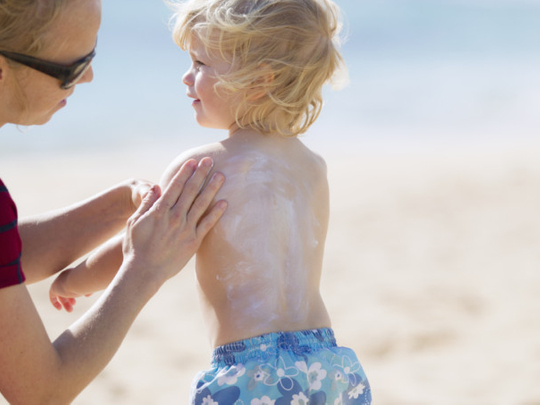
There’s an upside and a downside to summer. While the season brings fun and delight, it also takes its toll on you, inside and out. Yes, summer may not be the first season you think of when it comes to being under the weather, but the warm months can lead to infections, viruses and heat-influenced diseases.
Here are a few ways to prevent and treat summer’s most common ailments.
Acne and rosacea
Due to the hot and humid weather, the oil glands in oily skin types become more active. And the debris and dirt that clog those pores lead to pimples.
“The thing I notice most with my new patients, is that they use a chemical exfoliating cleanser too much, overdrying their skin. It is worth starting the summer with a visit to your dermatologist for a treatment plan that is suitable to your skin,” says Dr Lillian Khan, Brand Expert and Dermatologist, Pond’s Arabia.
The heat and the sun also make rosacea — a condition in which certain facial blood vessels enlarge, giving the cheeks and nose a flushed appearance — worse, so apply sunscreen 20 minutes before going out in the sun. Use a misting mineral water spray outdoors, which will cool the skin as it evaporates. Stay away from spicy food and caffeine as much as possible, as they can contribute to break outs.
Sore eyes
Sore eyes result from either allergens or viral or bacterial irritants that cause a reaction in the eyes. Since the weather tends to be dry and dusty during summer, sore eyes due to allergens occur more often, while those caused by viruses and bacteria persist because they are contagious.
Keep hands clean by frequent washing with soap and water or a hand sanitiser. Avoid rubbing the eyes. If hands do touch the eyes, cleanse them immediately. Tissues used to cleanse the eye should be discarded immediately. Alternate applications of moist hot and cold towels are also very helpful.
Food poisoning
Food poisoning can occur when someone eats food that has been improperly handled, contaminated or stored at the wrong temperature.
While dining out, be sure to inspect the food to see that it is properly cooked, arrives hot at your table (if cooked) and all meat is well done. If you suspect food poisoning, sip water or rehydration products, slowly, but be careful of Gatorade and PowerAde as they often have too much sugar, which can lead to increased diarrhoea. Over-the-counter medication can help relieve symptoms.
Heatstroke
Heatstroke occurs when the body temperature rises alarmingly. Symptoms include headaches, heavy sweating and feeling faint. Heatstroke can be fatal if immediate care is not taken.
Drink plenty of water or juice as they prevent dehydration and help to maintain your body temperature. Always wear protective headgear such as wide brimmed hats, glares, etc.
Apply cold compressions on the face (ice packs). Visit the doctor as soon as symptoms occur.
Skin cancer
Sun exposure has always been a great risk, especially during the UAE’s unforgiving summer heat. With the skin damage caused by ultraviolet rays leading to skin cancer, high exposure to the sun is a grave cause of concern.
“While skincare should be a daily routine, special care should be taken during the UAE’s harsh desert summers,” advises Dr Sanjay Parashar, Founder of Cocoona, a centre for aesthetic transformation. “Skin conditions that occur as a result of sun exposure shouldn’t be taken lightly.”
Exfoliation and moisturising are two key elements to integrate into your daily routine, along with constant hydration. Choose a sunblock with an SPF of more than 60.
A careful summer diet should also be taken into consideration. This involves eating the recommended five vegetables and fruits a day, preferably those with anti radical and anti pigmentation properties. “Get yourself examined regularly and thoroughly, with an eye open for moles, freckles or birthmarks that seem different or larger,” Dr Parashar says.










